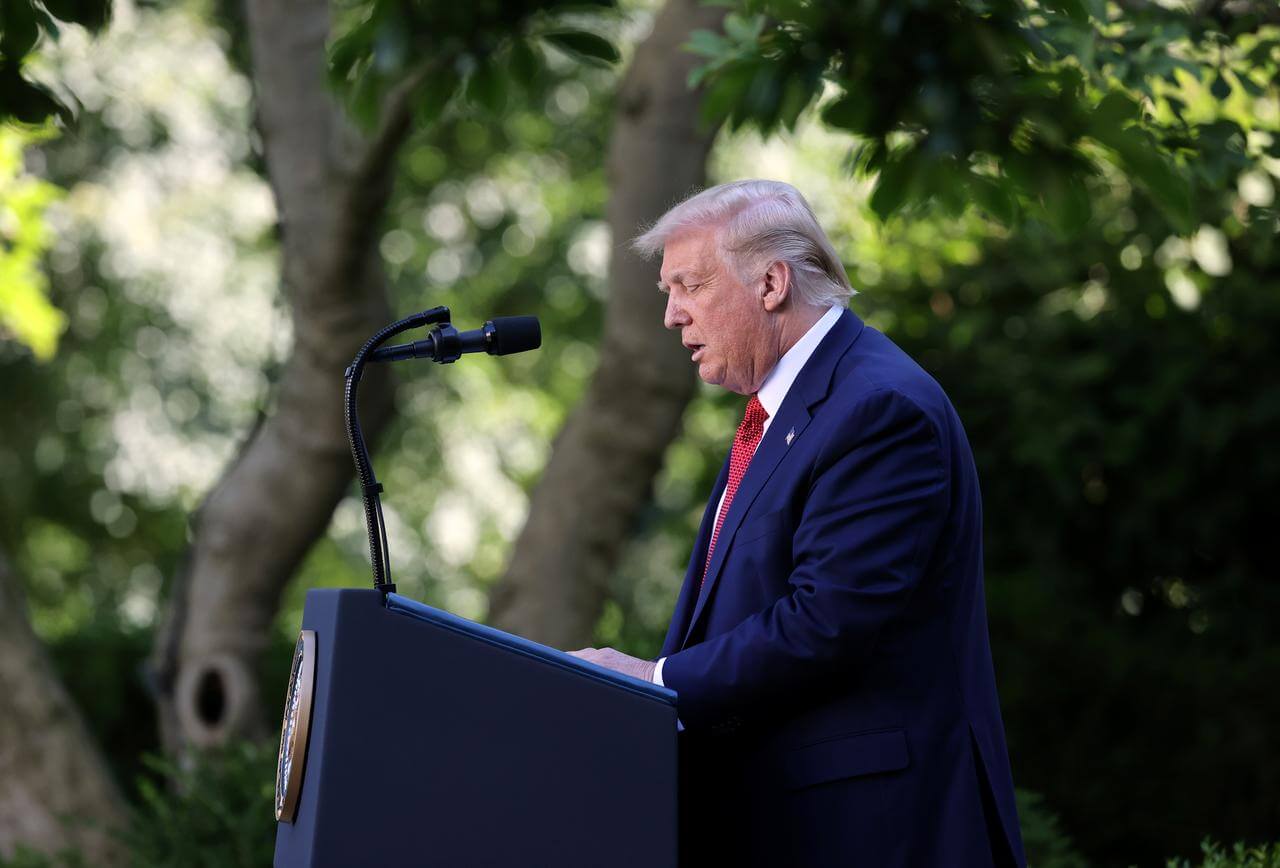US President Donald Trump signed an executive order on Tuesday that ends preferential economic treatment for Hong Kong, following China’s imposition of a draconian new national security law in the territory earlier this month. Speaking to reporters at the White House Rose Garden, Trump said Hong Kong will now be treated the same as mainland China, with “no special privileges, no special economic treatment and no export of sensitive technologies”.
The order states that US property of any person determined to be complicit in or responsible for “actions or policies that undermine democratic processes or institutions in Hong Kong” can be blocked, and that US officials can “revoke license exceptions for exports to Hong Kong”. It also rescinds the special treatment previously afforded to Hong Kong passport holders, and they will now be treated in the same manner as those with Chinese passports.
Trump also confirmed that he had signed the Hong Kong Autonomy Act—which was passed unanimously by Congress a few weeks ago—that will enable the US government to sanction Chinese officials and entities that are involved in “extinguishing Hong Kong's freedom”. These entities can include police units, businesses, banks, as well as Chinese Communist Party officials.
Experts, however, are wary of the consequences of ending Hong Kong’s special treatment, arguing that it could, in fact, significantly hurt US interests. The territory is home to more than 85,000 US citizens and more than 1,300 companies, and is also a major destination for American legal and accounting services. The US has a big trade surplus with Hong Kong, and the move has increased concerns among businesses in the city.
China on Wednesday promised retaliation, saying that it will take the necessary measures “to protect its legitimate interests, and impose sanctions on relevant US personnel and entities” against the US’ Hong Kong Autonomy Act, which “maliciously slanders” the new security legislation imposed by Beijing on the city. The Chinese foreign ministry urged the US to cease interference in China’s internal affairs.
Relations between the two nations have worsened in recent months as the two nations continue to lock heads over China’s handling of the coronavirus outbreak, the new national security law in Hong Kong, the treatment of minorities in Xinjiang and security measures in Tibet. Last week, the United States imposed sanctions on senior officials of the Chinese Communist Party for their involvement in human rights abuses targeting Muslim minorities in Xinjiang. Both sides recently introduced tit-for-tat visa restrictions on officials involved in formulating policies for Tibet. The two countries are also sparring on nuclear arms control negotiations along with Russia.
China on Monday announced retaliatory sanctions against US officials including former presidential candidates Ted Cruz and Marco Rubio over Washington’s “interference” in China’s internal affairs in Xinjiang. The Chinese foreign ministry on Tuesday also said that the government will impose sanctions on aerospace and defense company Lockheed Martin for its involvement in the latest $620 million US arms sale to Chinese-claimed Taiwan. On the same day, the US State Department formally rejected China’s maritime claims in the South China Sea (SCS) deeming them illegal. Secretary of State Mike Pompeo criticized China for treating the disputed waters as its “maritime empire” and asserted that Beijing’s “campaign of bullying” to control the seas was wrong.
Image Source: Reuters
Trump Ends Hong Kong’s Special Status and Sanctions China, Beijing Pledges Retribution
Trump said Hong Kong will now be treated the same as mainland China.
July 15, 2020

